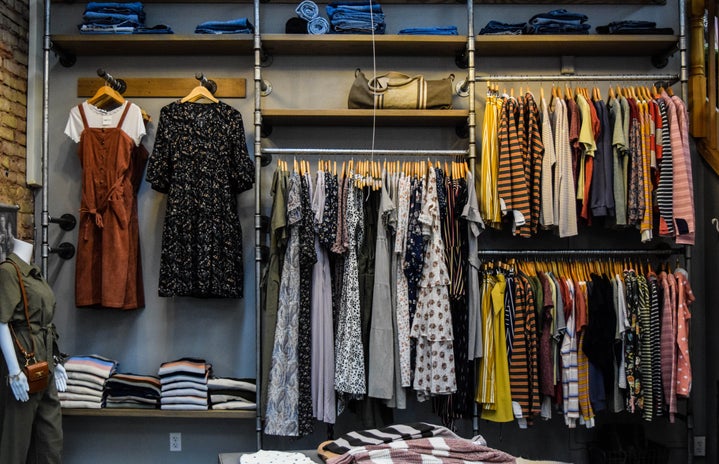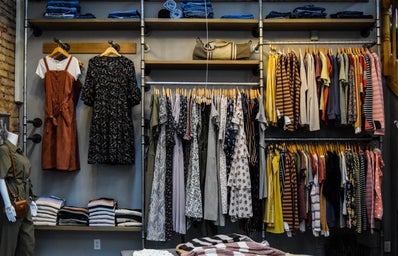Seventy percent-off sales, twenty dollar and under dresses, tanks and leggings for less than five bucks, who wouldn’t take advantage of deals offered by stores like Forever 21, H&M and Uniqlo? All us young college gals love trendy, affordable stores like Forever21–but are these deals too good to be true?
Forever 21 has over 723 locations across the nation and is the fifth largest speciality retailer in the US. H&M is #30 on Forbes’ World’s Most Valuable Brands. Zara is #52 on that same list and has more than 2,000 stores. By 2020, the highly popular and fast-growing Japanese brand Uniqlo will have more than 1,000 US locations. Gap Inc. made over $16 billion in sales last year.
Crazy right?! These companies, aka the leaders of the “fast fashion” industry, appeal to millennials because their clothes are trendy, hit every style from hipster to prep, and most significantly, don’t hurt our wallets. With less than $50, you can walk out of Forever 21 with a brand new outfit in comparison to a local boutique down the street where $50 dollars might just buy you half a blouse.
But the ease of access, endless selection and low costs come at a price. The instant gratification of a cheap new outfit is far outweighed by its social and environmental impacts. Just as hitting up McD’s everyday for some dollar menu chicken nuggets will eventually lead to health problems, a habit for shopping at fast fashion stores harms our local and global communities.
We are living in an age of speed—not only with technology but within the fashion industry as well. We see winter fashion shows in early summer because the products won’t actually be sold until half a year later, but “fast fashion” stores like Forever 21 can have a much more wallet-friendly imitation on shelves within 3 weeks. How is it even legal to borrow (*cough cough* steal) from designers? (That’s a whole other article in itself).
Even though price tags are cheap, it doesn’t mean all this is ethical. Here is why:
After watching a FANTASTIC John Oliver video on this issue, it turns out that there are still labor practices happening around the world that are just absolutely unacceptable. To keep their expenses low, fast fashion brands rely on low-wage, overseas labor. As Oliver pointed out, Gap has been accused of child labor and paying sweatshop workers 25 cents per hour for the 100 hours per week that they are required to work. We have fast fashion because of this cheap exploited labor. Those cute fifteen dollar high waisted jeans are suddenly not as cute and innocent as you thought.
Another problem is that these stores don’t offer the best quality in their products. I can’t tell you how many times I had to throw away skirts from Forever 21 because of broken zippers! This just goes to show that we are all totally okay with the idea that we won’t be keeping these items for long. It is promoting a culture of disposability. I visit my friends’ closets once in awhile and I am shocked by how much clothes they hoard. We have so many things that we just continue to fill our space with, and on top of that most Americans waste more money and buy storage to keep more stuff that they don’t even need. And if that’s not enough for you, according to Psychology Today, Americans spend more on shoes, jewelry, and watches ($100 billion) than on higher education. I’m obviously not the only one with a closet full of options and “nothing” to wear.
Ok so easy solution: Donate everything to Goodwill! EH wrong. Turns out centers like Salvation Army and Goodwill actually receive too many low-quality donations. Only 60% of donations make it to the store and everything else just gets thrown away.
This is going to keep happening if we let it. It’s a vicious mix of consumer greed but also another bigger problem that many people can’t afford clothing at a higher price point. It’s a vicious cycle, that enables the rich to get richer, and ultimately the bubble will burst.
“Buy less, choose well, make it last.”- Vivienne Westwood
“Fast fashion isn’t free. Someone somewhere is paying.”- Lucy Siegle
“Sometimes you can do everything right and it all goes wrong. And sometimes you can do everything wrong and it still goes right. It’s not fair-it’s just life.”- Larry Winget

